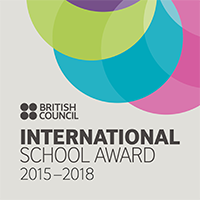Photography
(Board: AQA)



WHY STUDY PHOTOGRAPHY?
Choose Photography if you have a lot of imagination, ideas and creative flair; if you can or want to problem solve, if you enjoy looking at life from different perspectives, if you aware or want to be aware of the world around you, if you like experimenting with the way you view the world.
COURSE CONTENT
GCSE Photography will teach you to look at the world in a creative way. The creative potential stimulated in this course will enable you to apply creative, analytical and critical thinking and problem solving, in order to visually communicate ideas through photography. This awareness can also be employed to any other course that you do. Students will develop critical analyses of artists’ work helping to develop their own ideas through reaction, practical application and written reflections.
Throughout the courses, students will learn about a variety of photographic media, techniques and processes including use computers for Photoshop and digital media, utilising these techniques and equipment, to make brilliant images.
ASSESSMENT
-
Unit 1 is the Controlled Assessment (portfolio) worth 60%. This starts from September in Year 10 until January of Year 11.
-
Unit 2 is the externally set assignment (exam) worth 40%.
This task is starts from January in Year 11 and runs until May. Concluding with a 10hour exam over two days to create your final response using your preparatory work.
TRIPS
There are opportunities to visit Exhibitions both locally and further afield. In recent years ADT trips have included visiting London and the Tate Modern, and the Ashmolean in Oxford.
CAREER OPPORTUNITIES
Photography could lead to academic or vocational degrees relating to Art careers, Advertising, Commercial work, Editorial, Fashion, Film, Food, Forensic, Industrial, Architectural, Ariel, Portraiture and Wedding photography, Sports and Travel, Press Photography, Photojournalism, Fine Art, Editing, Fashion photography or Styling, the Film industry, Forensic science, Curating, Image Library, etc.

Contact: Mr Michael Reskalla



